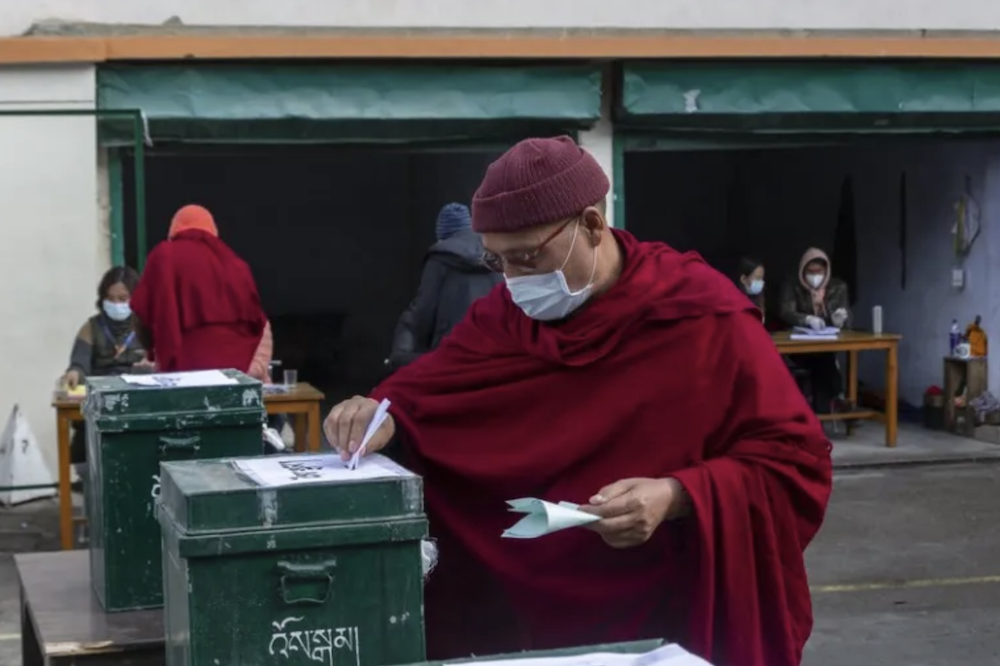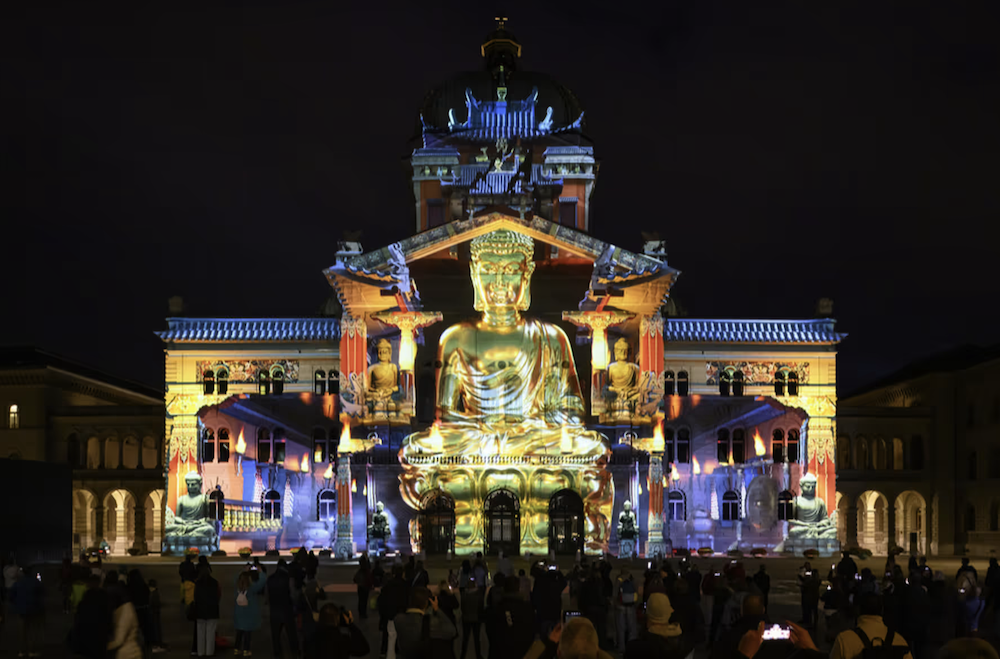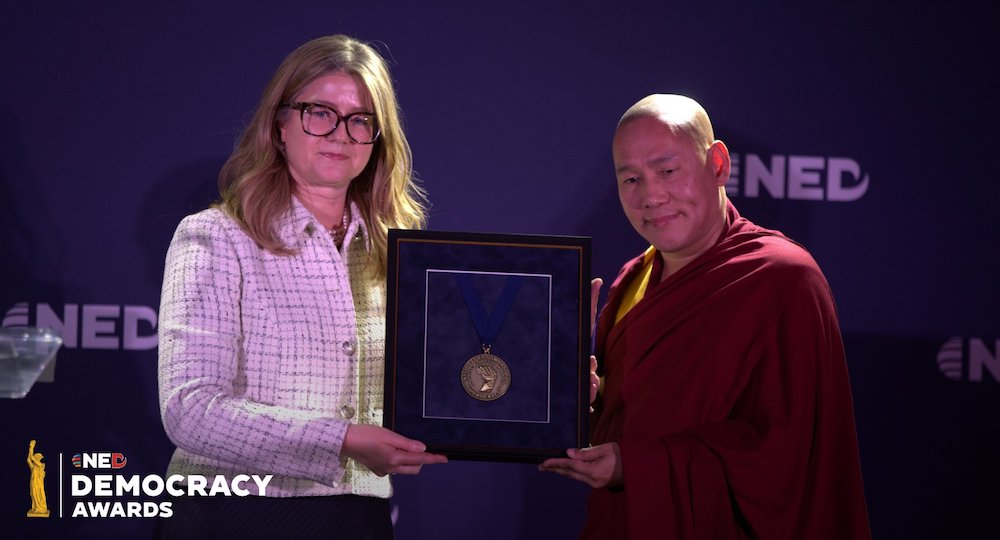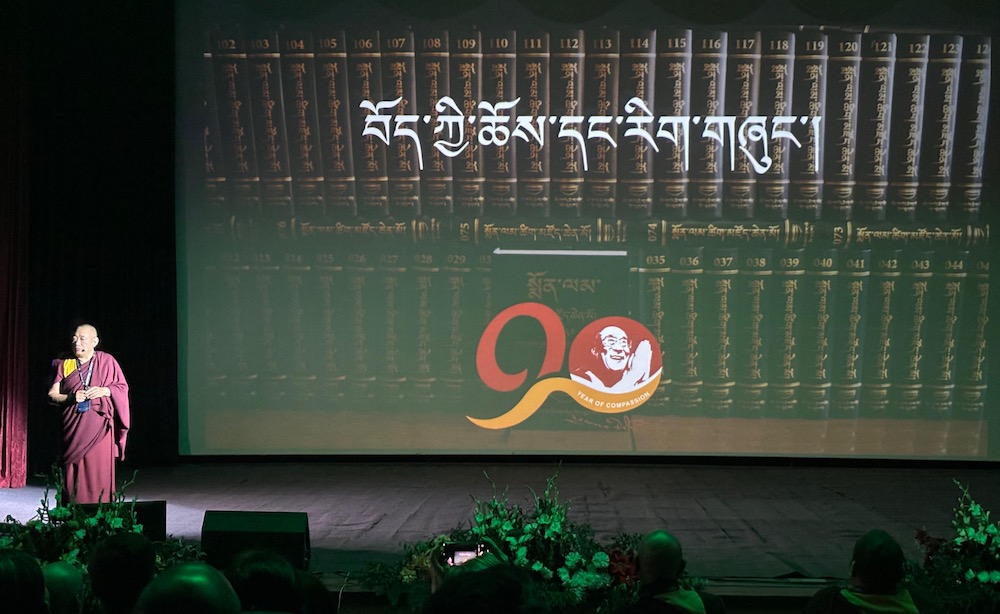By Pratap Chakravarty
 NEW DELHI – Police arrested four flag-draped Tibetan activists in New Delhi after they tried to storm a venue for talks between Indian and Chinese leaders, in one of several protests that drew a sharp rebuke from Beijing.
NEW DELHI – Police arrested four flag-draped Tibetan activists in New Delhi after they tried to storm a venue for talks between Indian and Chinese leaders, in one of several protests that drew a sharp rebuke from Beijing.
The four protesters managed to breach heavy security outside the ornate Hyderabad House, as Indian Prime Minister Manmohan Singh and Chinese President Hu Jintao held talks.
“China! Down, down,” screamed a protester with ‘Free Tibet’ painted on his bare chest.
Armed officers beat the four to the ground and using bare hands tried to muffle their anti-Chinese slogans as federal Rapid Action Force troops placed another security cordon around the centre.
“They took us by complete surprise,” a senior officer said on a street leading to Hyderabad House.
Chinese foreign ministry spokeswoman Jiang Yu severely criticised the Tibetan protests, saying they were designed to sabotage relations between the Asian giants.
“We believe they are carried out by the Dalai Lama’s faction to sensationalise issues and to ruin China-India relations,” Chinese foreign ministry spokeswoman Jiang Yu told a regular press conference.
Tibet’s spiritual leader, the Dalai Lama, has said he no longer seeks independence for the Himalayan outpost, but wants autonomy under Chinese rule.
More than 1,000 slogan-shouting Tibetans staged protests in the northern Indian town of Dharamsala, which the Dalai Lama chose as his headquarters after he fled Tibet in 1959 when Beijing crushed an uprising.
Activists of the Tibetan Youth Congress also surprised the police when dozens of them reached the British-built India Gate World War II memorial less than a kilometre (less than a mile) from Hyderabad House.
While scores of maroon-robed Buddhist monks also rallied in New Delhi to protest Hu’s visit, but they were bundled away in police trucks, witnesses said.
The monks screamed anti-Chinese slogans, burned an effigy of Hu and unfurled the Tibetan flag and chanted their national anthem before the police could detain them, the witnesses said.
The country’s leading English-language daily, the Times of India, said Tuesday that the attempt by Indian security forces to keep Tibetan protesters out-of-sight during the Hu visit was undemocratic.
“New Delhi has officially accepted China’s occupation of Tibet, but it has no business to demand that all sections of civil society toe the line,” the newspaper said in an editorial.
Hu and Singh, meanwhile, inked 13 accords and agreed to work harder to resolve a boundary dispute that took India and China to war in 1962, but did not discuss the vexed presence of the Tibetan spiritual leader in India, attending diplomats said.
“The Tibetan issue did not come up during the talks in Hydarabad House,” a Chinese diplomat told AFP.









